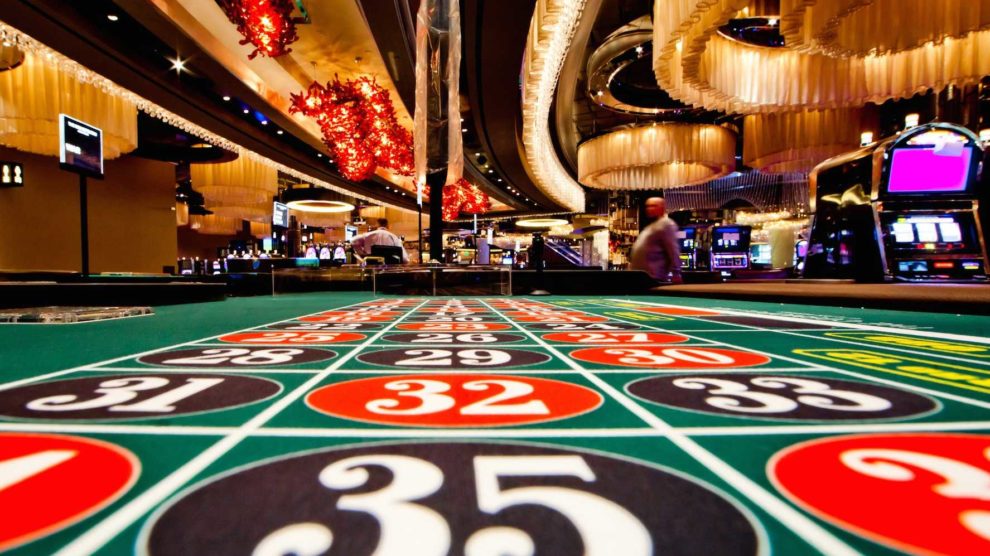
When we think of gambling games, the initial pictures that frequently cross our minds are those of spinning roulette devices, poker tokens clinking on felt tables, and dice rolling across a betting area. non Gamstop casino While numerous view these activities as mere hobbies fueled by chance, a more profound exploration reveals a fascinating blend of tactics, skill, and community interaction that raises them far beyond basic luck. Whether you are a experienced player or a curious newcomer, understanding the nuances of these activities can significantly enhance your experience and understanding.
Gambling activities have evolved over centuries, with different cultures contributing to their rich histories and variations. From the intricate strategies of 21 to the bluffing tactics in card games, players engage in a battle of intellect as much as a risk on odds. This exciting interplay between chance and expertise creates a exciting atmosphere that draws millions to gambling establishments worldwide. As we explore the realm of card games, we will reveal the strategies that can tilt the odds in your favor and the social elements that make these activities a favored choice for leisure and engagement.
The Approach Behind Casino Gaming
Casino games frequently involve a blend of skill and luck, making them intriguing for players who enjoy a challenge. Every game has its unique set of guidelines and strategies that can influence the results. For instance, in games like blackjack, players are obliged to use strategies like card counting and grasping the probabilities to make informed decisions. This expertise can significantly improve the victory potential, distinguishing experienced players from beginners who may rely solely on luck.
In contrast, titles such as the roulette may appear to be purely based on luck, but strategic thinking can also come into play. Players can select between various betting strategies, such as the Martingale strategy, in which they increase the wagers after losses. This method can create a more methodical way to the game. Grasping the probabilities of specific wagers can also help participants make smarter decisions on the table, demonstrating that even in games of chance, tactics can enhance the enjoyment.
Furthermore, the game of poker is notable as a title that heavily focuses on tactics. Unlike most casino games, poker combines ability, mental acuity, and luck. Participants must also focus on the cards they are given but also consider their opponents behavior and wagering patterns. Mastering principles like table position, the odds of the pot, and interpreting bluffs is essential for success. This complexity of strategy in poker often creates to a more immersive encounter for players, as the choices and skills significantly affect the match’s outcome.
Grasping Likelihood and Ratios
In the realm of casino games, likelihood and ratios hold a vital role in determining a gambler’s potential results. Every game has its own collection of principles that define how the probability of succeeding or failing is measured. For example, in matches like 21, players have a opportunity to influence their ratios through strategy, whereas in games like roulette, the results are entirely governed by chance. Understanding how these probabilities are calculated can significantly impact how a gambler tackles the game.
Odds are typically shown in two forms: ratio and numeric. Ratio ratios represent the ratio of the amount gained to the amount bet, whereas numeric ratios show the overall return for a winning wager, including the stake. For instance, if a game has odds of 5 to 1, this means that for every one unit bet, a player could win five dollars if they win. Knowing how to understand these odds enables gamblers to assess their possible earnings and formulate more educated decisions during play.
Gamblers should also be aware of the house edge, which is the casino’s built-in benefit over the gamblers. Each match has a distinct house edge, and comprehending this concept is crucial for managing one’s hopes and funds. Games with a reduced advantage, such as 21 and baccarat, typically offer better ratios for gamblers compared to activities like slots and lottery. By understanding the relationship between probability, ratios, and the house edge, players can improve their gaming experience and plan more efficiently.
The Exciting Aspect of Table Gaming
Casino games at gaming establishments are often seen as a center of social interaction, drawing participants together in a shared experience that extends far beyond the mere act of gambling. The atmosphere at a poker table can be electric, with gamblers engaging not only with the game itself but also with one another. Laughter, excitement, and, occasionally, playful teasing create connections that enhance the overall enjoyment of the gaming experience. This communal aspect can turn a alone endeavor into a lively gathering, making casino games particularly appealing.
One of the fascinating elements of gaming at tables is the way it cultivates friendship among participants. Whether it’s collaborating to defeat the dealer at a craps table or exchanging tales between hands in a poker game, the environment encourages interaction. Players often share advice or strategies, creating a sense of community that boosts the fun. This social dynamic can make new players feel included and less daunted by the competitive nature of casino games. As the game progresses, friendships may form, leading to a sense of belonging that keeps players returning to the table.
Moreover, the social aspect of gaming at tables extends beyond just the participants. Dealers play a crucial role in encouraging interaction and maintaining the flow of the game. Their ability to engage players with warm dialogue and their expertise in managing the table can create an inviting atmosphere. This connection between participants and staff adds another layer of enjoyment, where players feel bonded not only to one another but also to the staff. Such interactions are often what make the experience memorable, as players leave with stories to tell and relationships made, reinforcing the notion that gaming at tables are truly about more than just chance.
